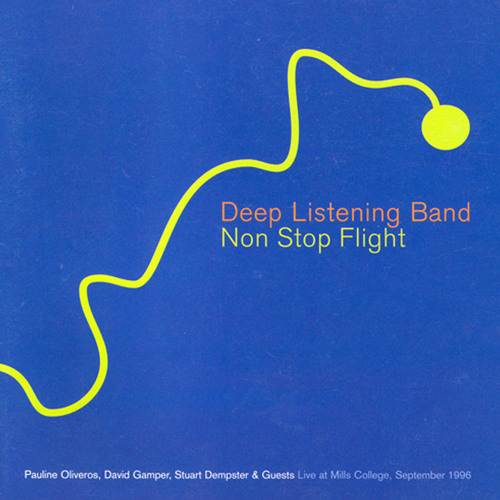-
Transient tranquility coupled with focused consideration makes for an interesting juxtaposition when listening to Pauline Oliveros’ work. My experience with the piece “Deep Hockets”, composed by Pauline Oliveros and the Deep Listening Band, further embellished the notable difference between ‘hearing’ and listening’, which Pauline details during her Ted Talk.
“To listen is to give attention to what is perceived both acoustically and psychologically” – i found this phrase most interesting in her talk, and can certainly apply its message when listening to the composition of the subject piece. Of course, observing the psychological response to sound is subjective, but when paying close attention to the various instruments (Piano, Horns, Trombone, Didgeridoo, Trumpet, Tuba and Violin) and the psychoacoustics of Mills College (The location of the recording), i found the ethereal feeling to be constant throughout.
From the onset of the piece, i felt a noticeable resemblance to other experimental and ambient pieces i have listened to in the past. Most notably, Boards of Canada’s eloquent layering and complex patterns in their electronic composition – the incorporation of ‘air’ and ‘space’ in the music to feel more approachable and listenable is certainly a key aspect when comparing the artists. Both pieces evoke a strong psychological response of tranquility when observed actively.
In contrast however, the artists differ largely in their use of instrumentation. Whilst the Deep Listening Band use solely acoustic instruments in this particular recording, Boards of Canada produce their music entirely electronically. What was outstanding to me was, despite both pieces being produced at roughly the same period in time, the differentiation in instrumentation made the pieces feel largely different – I observed a nostalgic feeling when listening to Pauline’s work, perhaps the acoustic elements of the production as well as the delicate playing led to a more aged sound, one that would perhaps be said to be ‘stripping music down’ to its fundamental core of ambience, whilst Boards of Canada certainly feels more innovative and experimental in its production.
-
Transient tranquility coupled with focused consideration makes for an interesting juxtaposition when listening to Pauline Oliveros’ work. My experience with the piece “Deep Hockets”, composed by Pauline Oliveros and the Deep Listening Band, further embellished the notable difference between ‘hearing’ and listening’, which Pauline details during her Ted Talk.
“To listen is to give attention to what is perceived both acoustically and psychologically” – i found this phrase most interesting in her talk, and can certainly apply its message when listening to the composition of the subject piece. Of course, observing the psychological response to sound is subjective, but when paying close attention to the various instruments (Piano, Horns, Trombone, Didgeridoo, Trumpet, Tuba and Violin) and the psychoacoustics of Mills College (The location of the recording), i found the ethereal feeling to be constant throughout.
From the onset of the piece, i felt a noticeable resemblance to other experimental and ambient pieces i have listened to in the past. Most notably, Boards of Canada’s eloquent layering and complex patterns in their electronic composition – the incorporation of ‘air’ and ‘space’ in the music to feel more approachable and listenable is certainly a key aspect when comparing the artists. Both pieces evoke a strong psychological response of tranquility when observed actively.
In contrast however, the artists differ largely in their use of instrumentation. Whilst the Deep Listening Band use solely acoustic instruments in this particular recording, Boards of Canada produce their music entirely electronically. What was outstanding to me was, despite both pieces being produced at roughly the same period in time, the differentiation in instrumentation made the pieces feel largely different – I observed a nostalgic feeling when listening to Pauline’s work, perhaps the acoustic elements of the production as well as the delicate playing led to a more aged sound, one that would perhaps be said to be ‘stripping music down’ to its fundamental core of ambience, whilst Boards of Canada certainly feels more innovative and experimental in its production.


Deep Hockets – Pauline Oliveros
Ben Beesley